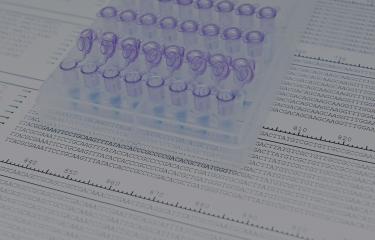Thanks to the sequencing of the 27 known human interferon genes, researchers from the Institut Pasteur and the CNRS reconstruct the genetic history of these proteins so central for our immune system, and put forward potentially innovative ways to improve the clinical use of interferons in the treatment of pathologies such as Hepatitis C, multiple sclerosis, and some cancers. These results are published on December 19th, 2011, in the Journal of Experimental Medicine.
Press release
Paris, december 19, 2011
Interferons are small proteins that allow the immune cells to communicate and, as such, play an important role in the stimulation of our natural defences. There are three different types of interferons that differ in their functions, but also in their genetic variability. The team led by Lluis Quintana-Murci, head of the Institut Pasteur/CNRS Unit of Human Evolutionary Genetics, focused on this last point and analysed the genetic diversity of every interferon across various human populations.
“By using an evolutionary genetics approach, we were able to identify which interferons could be essential to our survival, and which ones could be less important or have a more redundant role,” explains Mr Quintana-Murci. “We think that the interferons that are evolutionarily constrained have a more specific and important role in the fight against pathogens; as such they could represent more adapted therapeutic targets for future innovative and more efficient treatments.”
The various members of the type 1 interferon family (alpha/beta interferons), for example, show a very broad genetic variability. This result leads the researchers to consider that this family is very adaptable when exposed to a new pathogen, but also that some type 1 interferons have more essential roles than others.
On the contrary, the only type 2 interferon (gamma interferon) never shows any protein change from one individual to another. This high conservation testifies to its extremely specific and irreplaceable role in immune responses, in this case against mycobacteria.
As for the type 3 interferon family (lambda interferons): its genetic variability varies strongly depending on the geographical origin of the individuals. Their analyses showed that the European and Asian populations carry mutations that have conferred them, over time, a selective advantage to better adapt to their pathogenic environment, most probably reflecting an adaptation to viral pressures.
Globally these results argue in favour of a more targeted and precise medical use of interferons. The interferon alpha2, for example, is currently used in the treatment of chronic hepatitis C and of some cancers. However it may be relevant to use another type I interferon subtype that would have a more precise action with less side-effects.
Such conclusions will require further research before being confirmed and put in practice. However they open up interesting perspectives for new therapeutic options against a large number of human pathologies.
Funding
This research was funded by the Agence nationale de la recherche (ANR), the Fondation pour la recherche médicale en France (FRM), the Institut Pasteur, and the Centre national de la recherche scientifique (CNRS).
Source
Evolutionary genetic dissection of human interferons, Journal of Experimental Medicine, online on December 12, 2011
Jérémy Manry,1,2 Guillaume Laval,1,2 Etienne Patin,1,2 Simona Fornarino,1,2 Yuval Itan,3 Matteo Fumagalli,4 Manuela Sironi,4 Magali Tichit,5 Christiane Bouchier,5 Jean-Laurent Casanova,3 Luis B.Barreiro,6 and Lluis Quintana-Murci,1,2
1. Institut Pasteur, Unit of Human Evolutionary Genetics, Department of Genomes and Genetics, F-75015 Paris, France
2. Centre National de la Recherche Scientifi que, URA3012, F-75015 Paris, France
3. St. Giles Laboratory of Human Genetics of Infectious Diseases, Rockefeller Branch, The Rockefeller University, New York, NY 10065
4. Scientific Institute IRCCS E. Medea, 23842 Bosisio Parini, Italy
5. Institut Pasteur, Plate-forme Génomique, Pasteur Genopole, Paris, France
6. Department of Pediatrics, University of Montréal, Montréal, Canada
Contacts
Nadine Peyrolo / +33 (0)1 45 68 81 47
Isabelle Kling / +33 (0)1 45 68 89 28
presse@pasteur.fr





